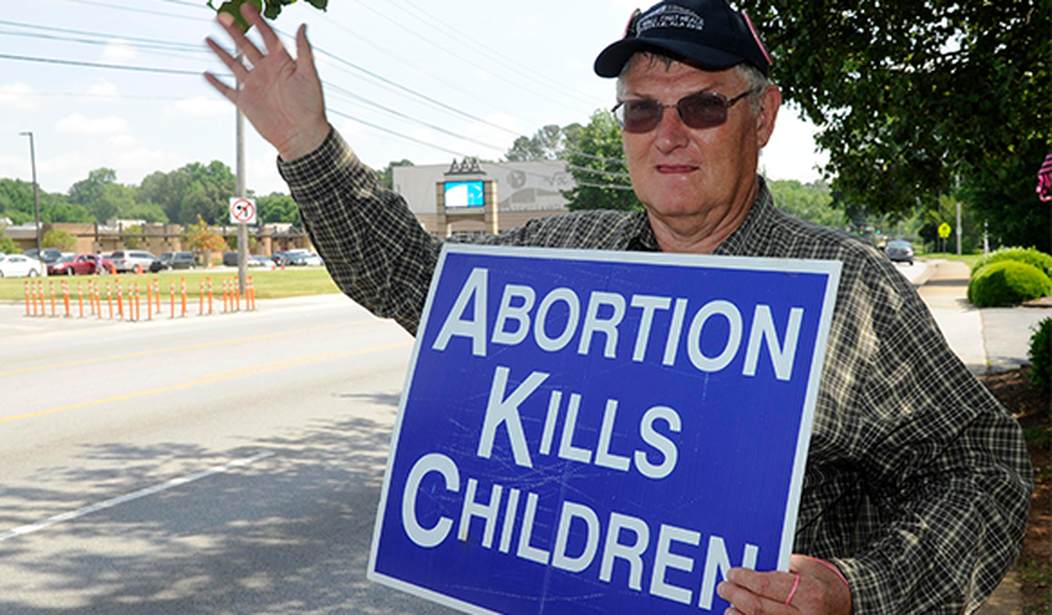Late Tuesday, the DOJ filed an emergency request with a federal judge asking that the Texas fetal heartbeat law be temporarily halted. The temporary restraining order would prevent Texas from enacting the new law. It is the latest action in what is a battle between the federal government and Texas. It is, simply put, a power struggle between states’ rights and the scope of the power of the federal government. The law is already in effect, as of September 1.
DOJ filed a lawsuit last week against Texas. It argues that the law, known as S.B. 8, denies women their constitutional right to an abortion. The law disallows abortion at the time of detection of a fetal heartbeat, usually around six weeks. That, and the provision that allows private citizens to provide law enforcement with information of those who perform an abortion after that time and those who help a pregnant woman obtain the abortion for a cash reward are two controversial elements of the new law. It can be argued that the law sets up an opportunity for vigilante justice yet the reason this is a provision in the law is to protect it against court challenges. Other states have attempted to enact fetal heartbeat laws but they have been struck down in court. The reason for that is states are sued, not individual people, by pro-abortion opposition. Texas legislators took a different approach or a different path to deter abortions.
In Tuesday’s emergency filing, the department argued that even though the Supreme Court has ruled that “a State may not prohibit any woman from making the ultimate decision to terminate her pregnancy before viability,” Texas has banned abortions months before viability — at a time before many women even know they are pregnant.
The brief said Texas had devised “an unprecedented scheme that seeks to deny women and providers the ability to challenge S.B. 8 in federal court. This attempt to shield a plainly unconstitutional law from review cannot stand.”
The Texas law took effect Sept. 1, effectively ending most abortions in the nation’s second-most-populous state, with no exceptions for rape or incest.
Federal judges have ruled in favor of abortion providers in past lawsuit challenges, citing Roe v Wade. The Supreme Court ruled that women have a right to abort their babies before viability and it stops states from placing undue burdens on the decisions they make. DOJ and pro-abortion opponents of the Texas law claim it is the beginning of the end of Roe v Wade.
Legal action is already being taken in Travis County (Austin). On Monday, attorneys for Texas Right to Life and for Planned Parenthood clinics agreed to a temporary restraining order against Texas Right to Life filing lawsuits against Planned Parenthood clinics.
The TRO signed Monday by Travis County District Judge Karin Crump bars Texas Right to Life, the group’s legislative director and multiple unnamed defendants from filing civil lawsuits against Planned Parenthood clinics. The abortion provider filed its petition earlier this month seeking protection from anticipated legal challenges.
The law does not give abortion providers the ability to recover attorney fees if they are successful in a case brought against them. Abortion rights advocates have argued that the purpose of the bill is to scare abortion providers with the threat of extensive litigation, likening its method of enforcement to placing bounties on the heads of abortion providers and private individuals.
After the U.S. Supreme Court declined to issue an emergency stay, the controversial abortion law took effect Sept. 1. Planned Parenthood filed its petition the following day.
The clinics argue the law has drastically harmed them already and will do more harm if it is not enjoined. They claim Texas Right to Life and those involved in the organization have already announced their plans to bring litigation against them, prompting the clinics to prempetively petition for injunctive relief against such suits.
In her brief order Monday, Crump wrote that the “plaintiffs will be imminently and irreparably harmed in the interim absent a temporary injunction.”
Planned Parenthood praised the decision.
Helene Krasnoff, Planned Parenthood Federation of America’s vice president for public policy litigation and law, said in a statement the group is pleased with the court’s decision to temporarily protect providers and clinic staff from litigation.
“We are relieved that the Travis County District Court has entered a temporary injunction against Texas Right to Life and anyone working with them… our providers and health care workers will now have some protection from frivolous suits as litigation against this blatantly unconstitutional law continues,” Krasnoff said.
In the meantime, abortions are not being performed in Texas after a fetal heartbeat is detected. A trial is scheduled for Planned Parenthood’s case against Texas Right to Life in April 2022.








Join the conversation as a VIP Member